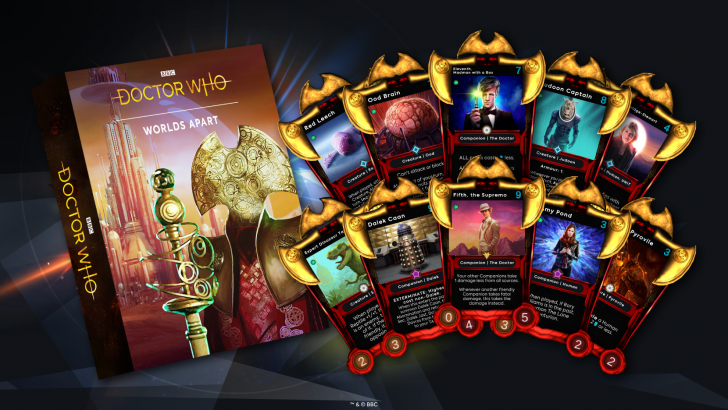This month, Licensing.biz is taking a look at the video games market to uncover and discuss the latest developments and opportunities in licensing around the world’s largest entertainment sector. Here, and in the first of a series of articles exploring the emerging NFTs sector, we explore the potential for non fungible tokens in the video game space.
[divider style=”solid” top=”20″ bottom=”20″]
It started out by breeding kittens. Like these things often do, it snowballed from there, and today, NFT video gaming is becoming a strand of the global gaming market that’s really worth paying attention to.
In fact, experts in the field predict that NFTs will change the shape of the video gaming market for good and in a manner that will turn convention on its head to place players right at the very centre of the multi-billion dollar industry. Which all sounds very noble, if not just a little bit too far fetched, surely?
Well, maybe not. Let’s return to those kittens. You were hoping we would. And let’s remind ourselves that it was way back in 2017 – when Covid-19 was a mere tickle at the back of a young bat’s throat – that collecting and breeding digital cats through the CryptoKitties platform was at the height of its popularity.
One of the earliest blockchain games in existence, the title made headlines for congesting the Ethereum network upon which its kittens ‘lived’ due to its overwhelming popularity. Believe it or not, the idea of collecting digital kittens – each one ultimately unique to their owner – to trade, sell, or use to breed completely new kittens, was one that caught the imagination of a rather sizeable chunk of the global gaming audience.
Neither just for Christmas or simply commodities for turning a profit (and daily CryptoKitties sales are still hitting over $30,000 a day, by the way) these kitties were also able to be utilised as characters in the KittyVerse, where they would participate in cat fights or solve puzzles. In essence, they were uniquely individual characters, controlled and owned by individual players, that could be inserted into any gaming scenario on the CryptoKitties platform.
Meanwhile, those who weren’t occupying themselves with the gestation period of a digital cat were getting their NFT kicks through Reality Gaming Group’s mobile combat game, Reality Clash and its own USP, a platform that enabled players to purchase ‘tokenised’, limited edition weapons to be downloaded into its game.

Tony Pearce is the co-founder of Reality Gaming Group, pioneers of NFT video gaming
These were, of course, the days of NFT before the term NFT even existed. The mere cave drawings of a concept that has in recent months been subject of an enlightenment and at the centre of an “explosion” that has witnessed brands – whether from the arts and culture (or even museums) sector or the children’s toy industry – move to get a foot in the digital collectables door.
“Back then, the only way we could talk about what we were doing was that we were ‘wrapping’ these items with a bit of code that tokenised them and made them limited edition,” recalls Tony Pearce, co-founder of Reality Gaming Group.
“For three years I tried to explain this to people who had no idea what I was talking about. But in the last six months, the NFT world has exploded… people are beginning to know what we mean by it.”
While it’s evident that the loudest noises are being made in the collectable art side to the NFT movement, Pearce remains insistent that the greatest cultural impacts are yet to be felt, and they will be felt across the video games industry.
“Every week that goes by, more and more people are realising the potential for NFT games,” he says. “But it is still a very small market, when you compare it to mobile games revenue in general. And it’s tiny in the whole games industry. But I have been in games for over 20 years, and have always come into new platforms.
“This is a platform that is waiting for a tipping point. It will be the moment that a really big gaming IP comes into it, integrates NFTs seamlessly, and makes it super easy for people to understand. And that is happening.”
It wasn’t too long ago that BBC Studios detailed its first partnership in the space, tapping Reality Gaming Group itself to develop a blockchain-based digital trading card game based on its Doctor Who franchise.
Titled Doctor Who: Worlds Apart, the licensed game enables fans to collect and trade digital versions of the characters from the iconic TV series. Secured on the blockchain, each NFT is a unique asset that cannot be copied, replicated, or even tampered with. They are in essence, one of a kind. A limited edition of absolute singular rarity. Like little digital snowflakes that will remain frozen. For the rest of time.
But for the kind of cultural impact that Pearce envisions, we need to scale up.
“It’s going to be Call of Duty having tradeable guns, or FiFA having tokenised players to trade with; it’s going to be one of these mass market games that integrates NFT seamlessly, and suddenly people will realise what that means for games.”
And that’s perhaps, precisely why, so far, it hasn’t been done. After all, what publisher will be the first Triple A video game franchise in the queue to relinquish its power over its players? For the companies currently running the show, the NFT pill is a bitter and tough one to swallow right now. And one that could turn the market on its head.
“The truth is,” admits Pearce, “the big game companies are worried about this. They are very happy to lock people in to their games, and only their games. The last thing Fortnite wants is you buying an in-app skin, taking it out and using it somewhere else. They want you spending money in the game.
“And that’s where the games industry is wrong in my view, and why I am so happy with the way the blockchain is changing that; because you could spend hundreds of pounds in a game, and actually, you don’t own anything.”
And what happens if that game gets pulled? It’s certainly not an uncommon occurrence, and with a majority of games now opting for in-game purchasing, the impact of closures could potential reach far and wide. According to the statistical website, Statista, in-game purchasing overtook game purchases last year, accounting for the biggest share of the video game market and taking around $54 billion from global audiences last year. By 2025, the market value of in-game purchases is expected to pass $74.4 billion.
This is no small amount that gamers are spending on items that, when it comes down to it, do not – in the physical sense – belong to them.

Doctor Who: Worlds Apart – an AR and NFT digital card game developed by BBC Studios and Reality Gaming Group
“In the real world, I go into TopShop three months ago and buy a t-shirt. TopShop went bust two months ago, so I’m walking down the street and my shirt disappears? That’s the equivalent of in-game purchasing right now,” says Pearce.
“I spent real money on those items, why don’t I own them? Well, the reason I don’t own them is because they are logged into that game in a centralised database. You don’t even have a wallet, you have an account.”
The idea central to NFTs then – whether that is in the video games space or in the digital collectables and art world – is that it allows for ownership to be changed hands. Its story is that it transfers the power back to the consumer or the player, by decentralising the assets bought by the player. Taking them out of the system composed by the games publishers, and into the ‘wallets’ (they are actually called wallets) of their owners. Even if the game they are from does go bust.
“So imagine that scenario, and the game you play has gone bust. You could say, ‘well what do I use my NFT gun for now’? Well, guess what?” says Pearce. “Someone else will make a game that will allow you to use that gun in it, because there is a community of people that have all of these guns that are waiting for the next game to come out.
“You have instantly got a community of hundreds of thousands of people that are desperate to use their items. What a great user acquisition tool that is.
“And if you have a game like Fortnite, that locks you in and won’t allow for NFTs, or a new game similar to Fortnite where you can use your NFTs, well, guess where the players are going to go.”
And that has to be the crux of the argument. The success or failure of the NFT video game market must therefore rest with the players.
“It is the players, the gamers, and the community that is going to force the big games companies to go blockchain, because independents are building for it. The big players have had it too good for too long but the blockchain has the potential to change all of that.
“It’s not going to be before Christmas, but over the next two to three years, we will see a big brand step in. simply because they have to. NFTs have the potential to turn things on its head, all driven by the global audience of gamers.”
You don’t get much more punk rock than that, and who knew it would all begin by breeding kittens.









